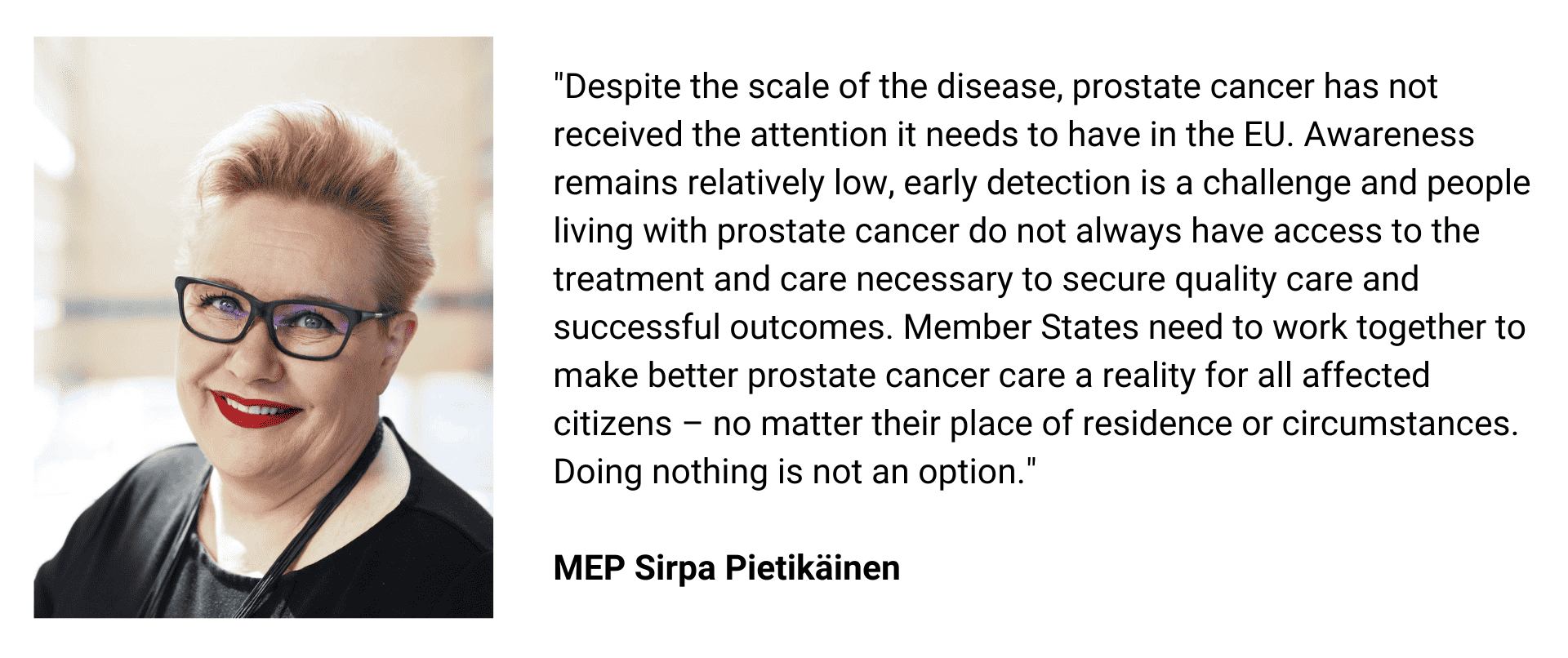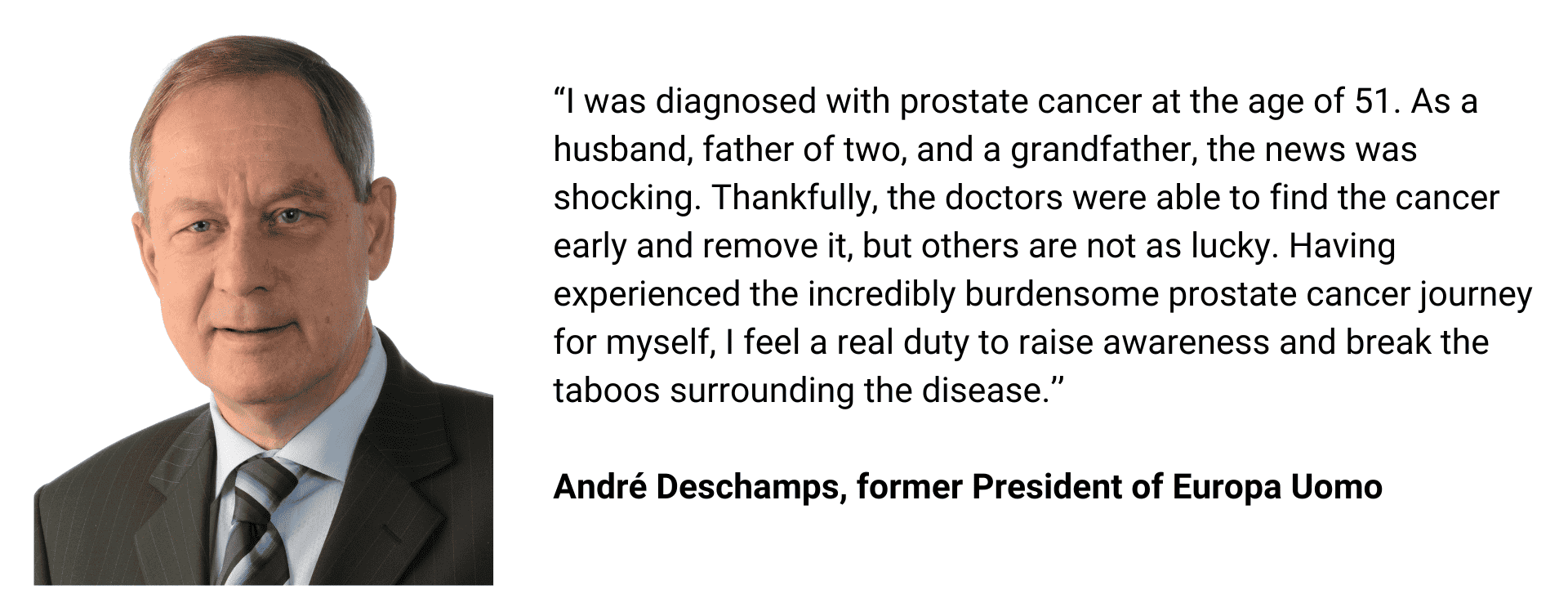This article was initiated and funded by Astellas Pharma Europe Ltd, and was written and developed in collaboration with the Let’s Talk Prostate Cancer Expert Group. The activities of the Let’s Talk Prostate Cancer Expert Group are funded by Astellas Pharma Inc., Amgen Inc. and Pfizer Inc.
Prostate cancer is the most frequently diagnosed cancer among men, affecting more than two million males across Europe[1] and causing approximately 75,000 fatalities.[2] Compared to other illnesses, however, levels of public awareness about the disease remain disproportionally low.

The key to saving lives is early detection, and this can only happen by increasing awareness of the disease and encouraging those affected to seek help. However, there are significant barriers to testing and care across Europe, reflecting the impact of gender, socio-economic, ethnic, and national inequalities.[3] Many of these barriers remain in place because prostate cancer has sat under the radar for many years, with a common misconception that it is somehow ‘less serious’ than other cancers. This couldn’t be further from reality.
.png) Source: 4
Source: 4
Prostate cancer and its treatment can lead to a variety of physical and emotional problems including sexual dysfunction, fatigue, anxiety, and depression.[4] It has a profound effect on the lives of patients and those closest to them. There are also gender-specific taboos and stigma that further compound the impact of prostate cancer, with men often struggling to share their difficulties with family and friends.[4] For example, a survey in Denmark revealed that between a fifth and a quarter of men aged 25-39 never or almost never have someone to speak confidentially with.[5] To tackle this, we need comprehensive, male-specific health policies or targeted initiatives to raise awareness and participation in early detection.
In 2022, we reached a significant milestone when the European Council announced its intention to extend targeted screening plans to include prostate cancer.[6] However, over a year later, there has been very slow traction with only a few member states making progress towards implementation. The Italian Ministry of Health for example, recently financed a pilot project for prostate cancer screening,[7] and the Czech Republic has started a national testing and risk-based screening program for men to encourage early detection.[8]
While it is of course encouraging to see steps in the right direction, unfortunately it simply isn’t enough. To effect truly meaningful change, we need to see broader, more harmonised implementation of screening recommendations across the EU. Prostate cancer must be made a priority, which is why the LTPC Expert Group is calling for all MEPs to sign “The MEP Declaration” in our 2024 EU Election Manifesto and commit to tackling the issue together. We must push prostate cancer up the political agenda, and with the new EU 2024-2029 mandate fast approaching, we have a prime opportunity to ensure that everyone in Europe receives the right detection and treatment at the right time - no matter who, or where they are. We must turn the tide on this life destroying disease to benefit patients, their families, and society at large. The time to act is very much now.


DISCLAIMER: This article was initiated and developed in collaboration with the Let’s Talk Prostate (LTPC) Expert Group. The LTPC Expert Group is a collaborative initiative that unites stakeholders at the EU level who have a common goal of advocating for policy changes and promoting education and awareness around prostate cancer. Since its establishment in 2018, the LTPC Expert Group has been working to bring attention to the challenges faced by people with prostate cancer in Europe such as late detection and diagnosis, limited or unequal access to treatment, and stigma.
The activities of the Let’s Talk Prostate Cancer Expert Group are funded by Astellas Pharma Inc., Amgen Inc. and Pfizer Inc., which collectively contribute to and support the goals and objectives of the Expert Group.
References
Sign up to The Parliament's weekly newsletter
Every Friday our editorial team goes behind the headlines to offer insight and analysis on the key stories driving the EU agenda. Subscribe for free here.